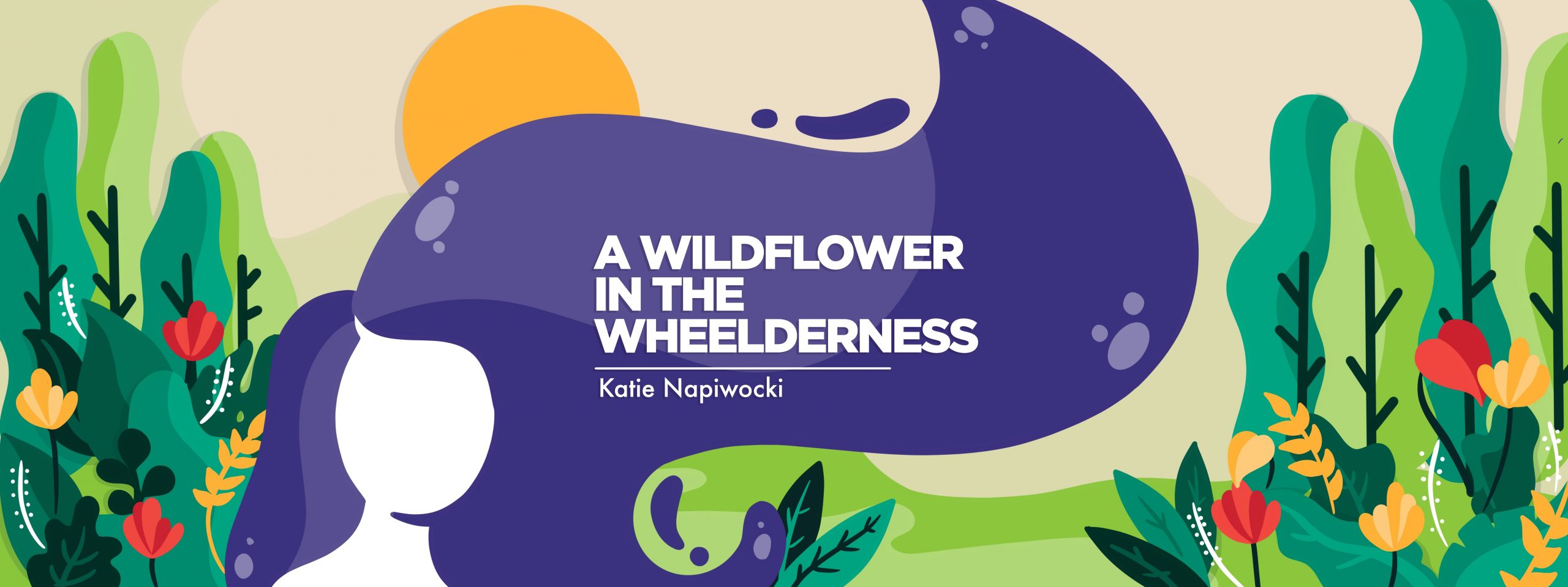The Day I Abandoned the Flowers: A Morning Memoir of Ableism
Written by |

I rolled up to the checkout counter, rosy cheeks beaming in delightful mimicry of the friendly-faced pansies beside me. The greenhouse air was thick and sweet like the morning sun’s hot breath in summertime.
As my caregiver placed several cartons of sprightly lantanas beside the cash register, a worker bee with wispy silver hair honed in on our presence and buzzed behind the counter to appraise my leafy merchandise.
She played a blooming game of “Tetris,” scanning and rearranging each container. She hummed along to tunes of country music that bellowed from the speakers with a vigorous twang, but curdled as swiftly as boxed gelatin strained through a latticework of sweltering airwaves.
The silver-haired lady wouldn’t make eye contact with me.
At first, I thought nothing of it. Running a greenhouse during the gateway month to midwest summer, she was as busy as the pollinators that had tirelessly orchestrated this floral battlefield of competing color bursts. I looked around at aisles upon aisles of potted blooms, walls of climbing vines, and a ceiling of soaring baskets.
With a few final beeps, the blossomed headcount wrapped up.
“Does she want these packaged in a large flat?” The lady smiled at my caregiver.
My puzzled eyes darted between my caregiver and the silver-haired lady as I replied, “Sure, that’d be great.”
She continued her busy work with my flowers and carried on the conversation with my caregiver, “Does she want a receipt? And, has she purchased anything here before? We have a great bonus bucks program …”
My face scrunched with irritation as my brain solved the mystery of this socially awkward interaction. Instead of looking at me and talking to me, the worker bee obviously preferred to rely on my caregiver to mediate the line of communication.
I made her uncomfortable. I left the evergreen shack with my entourage of plants, never achieving eye contact with the lady from whom I purchased them. My spirit thirsted for validation of my human self. In the wake of an ableist attitude and careless hands, I felt myself wilting in a deep drought.
My skin felt petal-thin. I wanted to abandon these flowers, never to return and never to look back. I resented the worker bee for inflicting her silent stinger upon me. During the drive home, I tended to the inflamed welt on my heart and ego.
I considered alternative outcomes of the situation and asked myself what would’ve made me happier, regardless of her comfortability with me. Would I have instead preferred the interaction be dripping with pity and infantilism?
In the name of keeping sweet peace, I try to give people the benefit of the doubt — sometimes far more often than they deserve. I try to connect and afford them the opportunity to ask questions and learn from me. I allow others to make mistakes. In turn, I learn more about myself.
But if people don’t wish to interact with me, it’s difficult to cultivate fields of inclusion and groves of compassion.
Sometimes, distasteful comments are thrust upon people with medical conditions and disabilities. Other times, a blanket of silence is laid over the situation. Being ignored is, perhaps, harder to emotionally navigate than being given the opportunity to reply to micro-aggressions.
When people ignore me because they’re uncomfortable with me, I feel as though they’re attempting to erase my existence altogether. I don’t expect everyone to be comfortable with how my disability looks, but I do expect everyone to look for the humanity in me.
If people struggle to show me love because they fear my SMA, it likely has more to do with them than me — they fail to love themselves, or are afraid of the possibility that someday, they might be called upon to love their own disabled body. I remind them of vulnerability, and perhaps they fear what life would look like if their coveted independence and health were in question. Self-love doesn’t only pertain to individuals. When we accept ourselves unconditionally, it spreads to everyone with whom we’re connected.
If our society made disability a more approachable, natural topic with universalized accommodations for all abilities, we’d remove barriers of fear, too.
I’ve mentioned how life is not always about growing but outgrowing. In this situation, it was evident to me that life is also about unlearning. We learn from people who teach us to be better and brighter. We must consciously unlearn habits which impose a hurtful disservice to others.
I can’t change how others interact with me. But, I can grow my garden. I can nurture the tender buds, attract pollinators, and allow it to bear fruit. I can deadhead the old and weed out the invasive.
And in one corner, a wildflower patch can thrive in streams of sunlight. That’s where you’ll find me.
***
Note: SMA News Today is strictly a news and information website about the disease. It does not provide medical advice, diagnosis, or treatment. This content is not intended to be a substitute for professional medical advice, diagnosis, or treatment. Always seek the advice of your physician or other qualified health provider with any questions you may have regarding a medical condition. Never disregard professional medical advice or delay in seeking it because of something you have read on this website. The opinions expressed in this column are not those of SMA News Today, or its parent company, Bionews, and are intended to spark discussion about issues pertaining to spinal muscular atrophy.




Leave a comment
Fill in the required fields to post. Your email address will not be published.